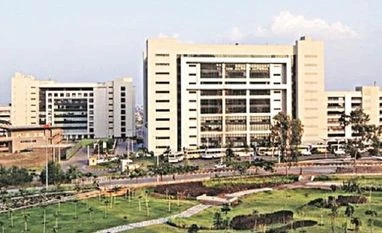Pune has emerged as the best city, and Bengaluru the worst, in terms of quality of urban governance, according to a 23-city survey conducted by a Bengaluru-based non-profit organisation Janaagraha.
Janaagraha Centre for Citizenship and Democracy released the 5th edition of its Annual Survey of India’s City-systems (ASICS) report which shows Pune as having scored 5.1 on a scale of 10, followed by Kolkata, Thiruvananthapuram, Bhubaneswar and Surat. Delhi moved three spots up to the sixth place this year, against ninth in the 2016 survey. Mumbai’s ranking fell from sixth in 2016 to ninth in 2017.
ALSO READ: Pune tops in improved quality governance: Survey The
worst performers this year were Bengaluru (scoring the least, at 3 out of 10), Chandigarh, Dehradun, Patna and Chennai. These constituted the bottom five cities with scores ranging between 3 and 3.3 out of 10.
Last year, Thiruvananthapuram topped the list, followed by Pune and Kolkata.
The cities were measured under four
key components of governance: urban planning and design; urban capacities and resources; empowered and legitimate political representation; transparency, and accountability and participation.
It also shows where Indian metros stand when compared with some megacities elsewhere. According to the 2017 report, Johannesburg in South Africa, London in the UK and New York in the US scored 7.6, 8.8 and 8.8 respectively, whereas Indian cities could hardly score above 5 with
Pune barely touching the 5.1 margin.
The survey painted a bleak picture of the Indian cities and revealed that cities were "grossly under-prepared" in delivering a high quality of life that is sustainable in the long term.
"The recurring floods, garbage crises, fire accidents, building collapses, air pollution and dengue outbreaks are only symptoms of this deeper governance crisis in our cities," the report said.
Despite the National Green Tribunal pulling up the government and its various agencies for failing to prevent pollution and not doing enough to restore the lake to its pristine glory, the lake had always been in bad shape.
This reiterates the point that the local government has not properly prepped to handle the situation as well as the pollution levels in the city. Bengaluru Mayor R Sampath Raj said the fire seems to be an outcome of the accumulation of chemicals.
Furthermore, according to a recent IndiaSpend report citing the city-based Environmental Management & Policy Research Institute (EMPRI) project, nearly 85% of Bengaluru’s surveyed water bodies, including 398 lakes, medium-sized water-pools for cattle and micro ponds had water that could only be used for irrigation and industrial cooling. The two-year project was supported by the state government, which came out as another misgovernance in the city system.
ALSO READ: 13 South Indian cities have toxic air; at least 26 more are unsafe: Study On the brighter side, according to the study, Bhubaneswar stood out for significant improvement and moved six positions to fourth this year from the tenth position in 2016 while two new cities added this year -- Guwahati and Vishakhapatnam -- showed disappointing results.
"Indian cities are in a precarious situation. There is a marginal improvement, but the rate is slow compared to the rate at which problems in the cities are growing," JCCD CEO Srikanth Viswanathan told PTI while releasing the 5th edition of the survey in New Delhi.
Speaking to IANS, Anil Nair, Deputy Head, Advocacy and Reforms at Janaagraha said, "ASICS does not measure quality of infrastructure and services such as roads and traffic, garbage, water, housing, sanitation and air pollution but instead measure the preparedness of cities to deliver high-quality standards, municipal finance and staffing, political leadership at the city level and transparency and citizen participation.
Moreover, the study said that over the past three years, a period when the NDA government launched several flagship urban missions – Smart Cities, Swachh Bharat, AMRUT and Housing for All – the scores had jumped from 3.4 to merely 3.9.
This primarily means that a city's quality of governance is measured on the basis of analysis of urban bodies, local governance, analysis of laws, various policies and RTI responses from the State government.
Hindustan Times reported that the survey also revealed that the urban capacities across cities were suffering from rampant staff vacancies, inadequate domain experience of senior municipal officers, and powerless mayors and councils.
Commissioners were found to have only had 2.7 years of experience in urban management on an average. Average staff vacancy stood at 35%, with Guwahati bottoming out at 60%.
“The mayor and councils in our cities are toothless. They don’t have full decision-making authority over critical functions such as planning, housing, water, environment, fire and emergency services,” the report stated.
"The report underlines the need for sharp focus on city-systems or institutional reforms to city governance in our cities. This indicates slow progress on fixing city-systems which is worrisome given the pace at which India is urbanising and the already poor state of public service delivery in our cities," it added.
Unlock 30+ premium stories daily hand-picked by our editors, across devices on browser and app.
Pick your 5 favourite companies, get a daily email with all news updates on them.
Full access to our intuitive epaper - clip, save, share articles from any device; newspaper archives from 2006.
Preferential invites to Business Standard events.
Curated newsletters on markets, personal finance, policy & politics, start-ups, technology, and more.
)